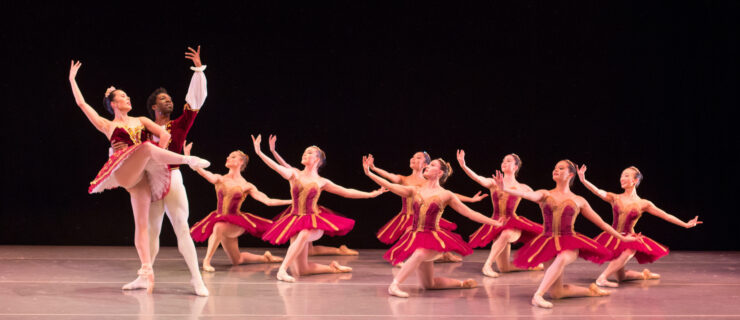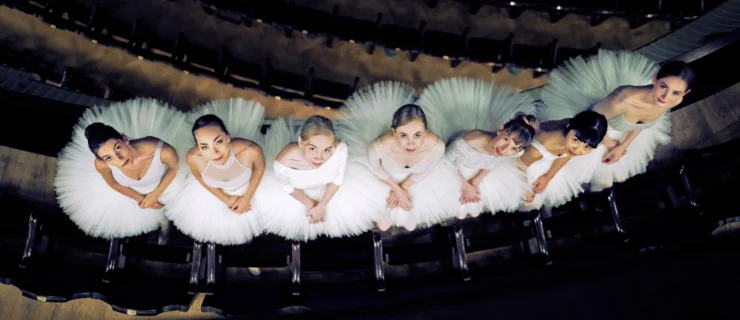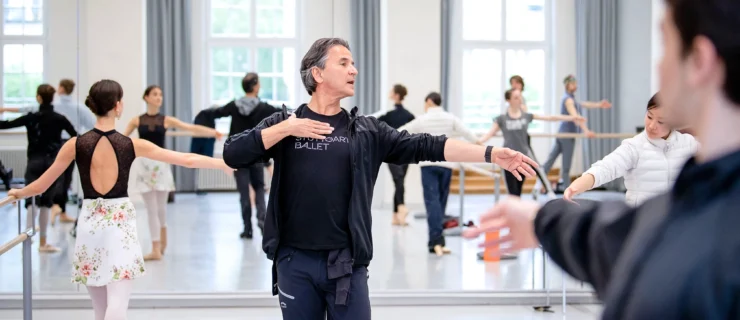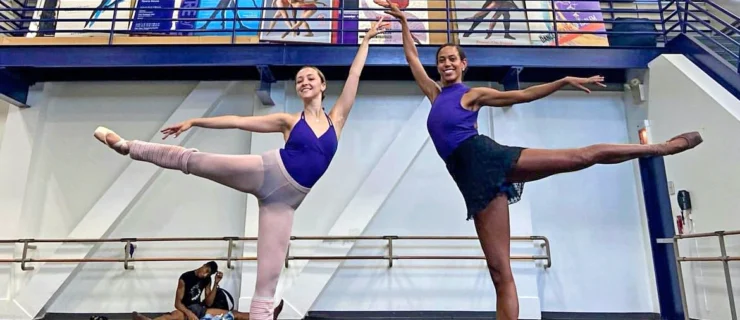Ask Amy
Whenever I see videos of other dancers my age doing amazing tricks for competitions, I feel my self-confidence steadily decreasing. Am I not a good dancer because I can’t do those things? —Madeline
Absolutely not! During competitions, dancers often opt for virtuosic choreography to attract the judges’ attention. And let’s face it, nose-high extensions and quadruple pirouettes will definitely turn heads. But in the professional world, the goal is to interpret the choreographer’s vision, not to win a prize. Even when they’re attracted to amazing technical feats, artistic directors also look for movement quality, artistic expression, work ethic and emotional maturity. I’m certainly no master of showstopping technique, but directors have hired me based on other strengths. Tricks have their place, but they’re the extreme, not the basis, of ballet.
Unfortunately, there will always be someone out there who can do more than you—that’s a harsh reality that all dancers have to face. I have days when I get depressed while watching younger dancers whip off flawless triple pirouettes in class. But rather than thinking “I’m a miserable failure because she turns better than I do,” I try to deal with these feelings by asking myself how I can learn from what she’s achieving. I examine her preparation, her placement, her arms, etc., to see if she’s doing something that I could try in my own turns.
Next time you watch a video, try not to compare yourself to the students competing—they may have unusual natural abilities or better training opportunities than you do. Instead, use it as inspiration to focus on strengthening the quality of your own technique, and then build quantity from there.
I don’t know if I should stay at my year-round school or go to a different program this summer. I want to remain at my studio because I love it, but would that affect my career later on? My teacher says it’s important to expand my resumé and get my name out there. —Paula
Your teacher has a point. It’s wonderful that you like your local studio, but stepping outside of your comfort zone can be hugely beneficial. New experiences bring new ideas and expand your horizons. You’ll be exposed to other techniques and styles you might not have access to at home. Sometimes a new teacher will describe a concept differently and the correction will suddenly click. For example, my teachers at home always used to say “suck in your stomach.” But once at a summer program, a different teacher giving the same correction told me to lengthen my lower back. I understood the advice better that way and eventually developed more stability in my core.
At a different program, you’ll also have a chance to make new dance friends, explore a new city and size up the competition. You’ll dance all day, every day—think of how much you could learn! And if you want to dance professionally, a summer program is the perfect place to be seen by company directors and to audition for traineeships. If you just want to get your feet wet this year, several schools have started to offer shorter two- or three-week intensives (see my article on this type of program on page 80). I expect you’ll have a great experience and be back for more.
How can I get rid of the wiggles? Some people have perfect control, but I always make little adjustments when I try to balance. I’m working on my core, but what else can I do to achieve stability? —Anne
There could be several reasons why you’re having trouble. Luckily, you’re on the right track to correcting the problem—a strong core will definitely help you find balance and control. I spoke with Deidre Miles Burger, director of Orlando Ballet School. She believes you may be experiencing tension in other areas of your body, such as your arms and hands. “Your movements should always come from the center outwards,” she says. “Keep the solidity of your core while remaining calm in your extremities. The arms should be held, not tense.” She recommends taking Pilates or Gyrotonic classes to help you strengthen your center.
You should also be honest with yourself while you work. For instance, do you shift your hips and feet every time you close fifth position to compensate for imperfect turnout? If so, you’re not doing yourself any favors. Work correctly and intelligently with what you have to maximize control—otherwise you will constantly have to adjust your body between movements.




